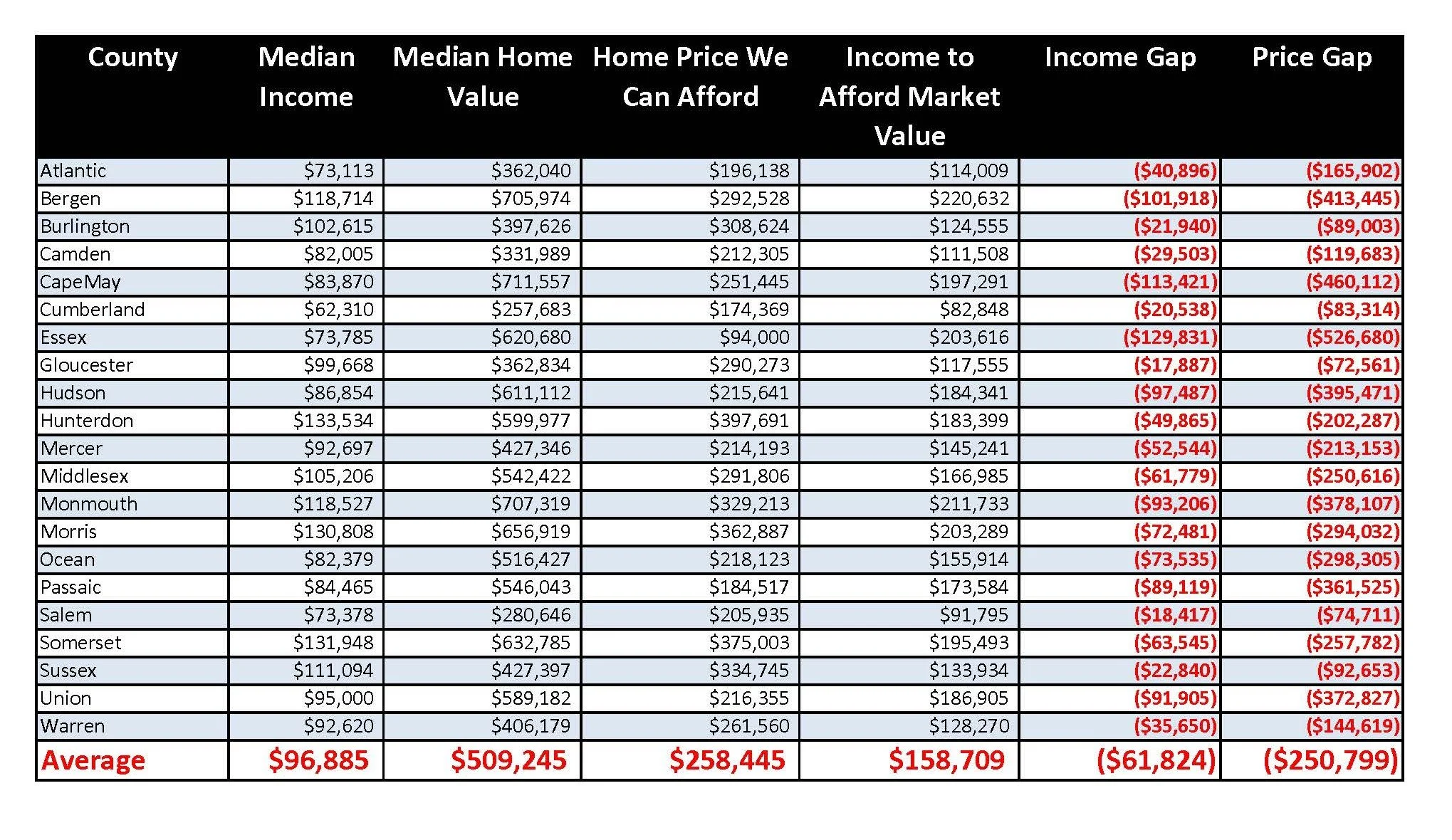If you earn under $100,000 this impacts you!
Who qualifies for affordable housing in NJ?
Homeownership is out of the question for most NJ families.
In numerous New Jersey counties, families are restricted to homes priced under $300,000, while the majority of listings approach $700,000, according to 2022 data. This issue has worsened as housing costs rise, necessitating immediate intervention.
In New Jersey, the average annual income is $96,000. A family can support a mortgage of about $258,000. However, with the average home price over $500,000 in 2022, families face a shortfall of around $250,000.


